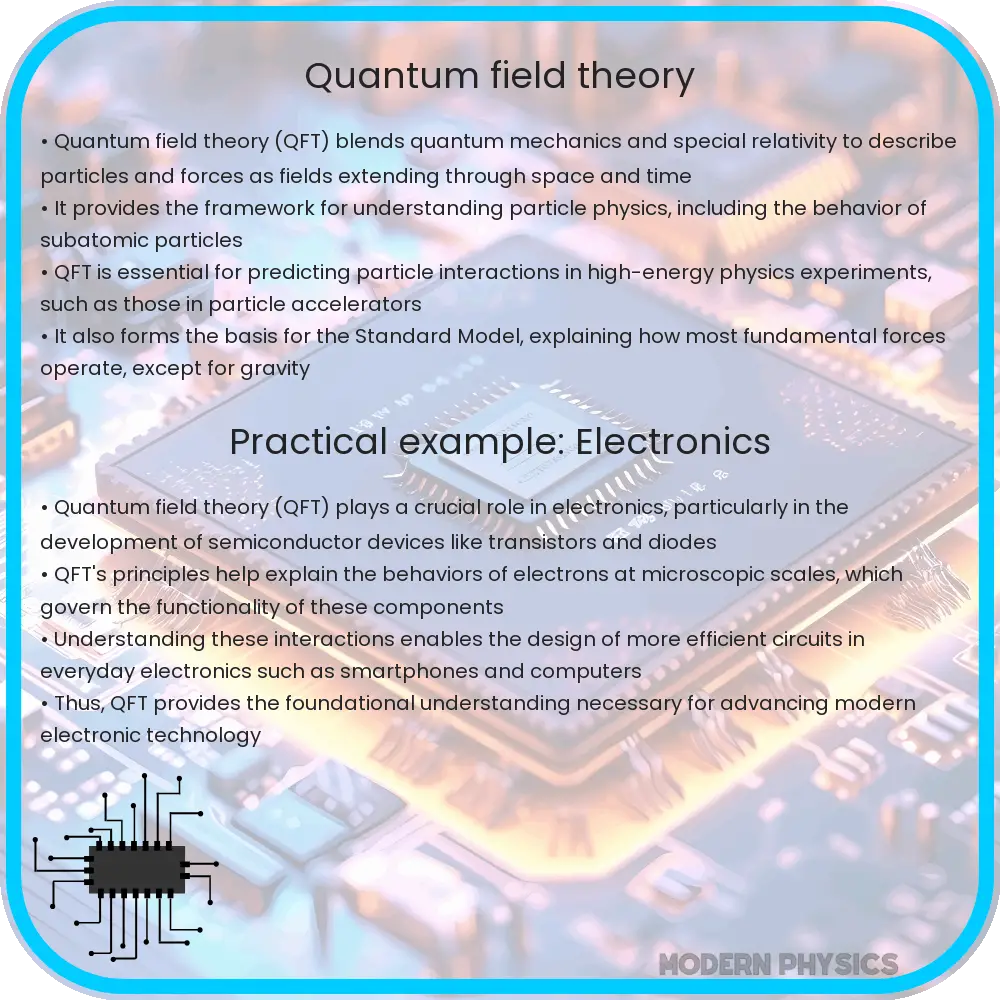Quantum field theory (QFT) stands at the crossroads of quantum mechanics and the theory of relativity, promising a profound understanding of the fundamental constituents of matter and the forces that govern their interactions. As an elaborate framework, it describes particles as excitations within underlying fields, ultimately reshaping our perspective on both determinism and indeterminism in the physical universe. A pressing question arises: is quantum field theory inherently deterministic or does it embrace intrinsic randomness in its predictive capabilities?
To address this inquiry, we must delve into the foundational principles of quantum mechanics and explore how these principles interlace with the intricate tapestry of field theory. Classical physics, underpinned by deterministic laws, portrays a universe in which complete knowledge of initial conditions permits the prediction of future states. Newton’s laws and classical field theories assumed a level of certainty, where cause-and-effect relationships dictated the natural order. Conversely, the advent of quantum mechanics in the early 20th century, primarily exemplified by the works of Max Planck and Albert Einstein, challenged these deterministic paradigms.
In quantum mechanics, the famous wave-particle duality encapsulates a fundamental uncertainty. The Heisenberg uncertainty principle, one of the cornerstones of quantum theory, asserts that there exists a limit to the precision with which certain pairs of physical properties, such as position and momentum, can be simultaneously known. This principle introduces an epistemic form of uncertainty, resisting deterministic descriptions. Rather than assigning definite trajectories to particles, quantum mechanics operates probabilistically, yielding only the likelihood of finding a particle in a particular state when a measurement is made.
Transitioning into quantum field theory, the relational structure of fields further complicates the discussion on determinism. In QFT, particles are not independent entities but rather excitations of fields permeating the universe. The mathematics employed in QFT operates within the realm of operator theory, where observables and states are manipulated through commutation relations and probability amplitudes. The resulting framework employs perturbation theory and Feynman diagrams, which facilitate understanding of particle interactions through virtual processes that can yield non-intuitive outcomes, thereby reinforcing the probabilistic nature of quantum phenomena.
Definitively, salvaging determinism within QFT appears elusive. Notably, the theory does provide deterministic equations governing the evolution of quantum states; however, these equations inherently encompass a probabilistic interpretation. Quantum states evolve smoothly according to the Schrödinger equation (or its relativistic counterparts), yet the outcomes of measurements remain intrinsically random. This juxtaposition raises profound philosophical implications, prompting debates about the ontological status of quantum entities and the nature of reality itself.
One fascinating interpretation within quantum field theory is the Many-Worlds interpretation. Introduced by Hugh Everett III in the 1950s, this interpretation posits that all possible outcomes of quantum measurements actually occur, manifesting in a vast multiverse. Herein lies a deterministic narrative, where upon each quantum event, the universe bifurcates into branching pathways—effectively creating a deterministic backdrop against an indeterminate façade. However, this raises critical questions about the nature of probability. Is it mere subjective ignorance or does it afford insight into the underlying structure of reality?
Another significant interpretation is the Copenhagen interpretation, championed by Niels Bohr and Werner Heisenberg, which firmly acknowledges the indeterminate essence of quantum events. Measurement plays a pivotal role—until an observation occurs, particles exist in superpositions of states, leaving predictions confined to probabilistic terms. The collapse of the wave function during measurement engenders a stark delineation between potentiality and actuality, thereby perpetuating a non-deterministic understanding in line with observable phenomena.
Exploring further, the role of quantum entanglement introduces an added layer of complexity, intertwining the fate of particles over arbitrary distances. Entangled states exhibit correlations that transcend classical limitations. The phenomenon of instantaneous state determination when measuring one part of an entangled pair defies classical notions of locality and causality, hinting at a deeper interconnectedness within the QFT framework. While entangled states challenge deterministic interpretations, they simultaneously enrich our understanding of non-local interactions, requiring a reevaluation of causative principles in quantum mechanics.
Yet, within the theoretical landscape lies the prospect of quantum gravity, aiming to unify quantum mechanics and general relativity. Some theorists posit that a viable theory of quantum gravity might resurrect determinism by establishing new, underlying principles governing the fabric of spacetime and entangled particles. Speculative models, such as loop quantum gravity or string theory, suggest that at fundamental levels, determinism may reemerge, suggesting potential unity between quantum fluctuations and classical determinism.
In conclusion, the discourse surrounding quantum field theory’s relationship with determinism is richly complex and riddled with tantalizing possibilities. While traditional interpretations yield a landscape steeped in probabilistic uncertainty, emergent frameworks and approaches pose significant questions worthy of exploration. Concepts such as Many-Worlds invite us to contemplate a deterministic multiverse, while the advancements in quantum gravity research open avenues to reconcile the contrasting paradigms at play. As physicists journey deeper into the quantum realm, the pursuit of understanding the nature of reality may inevitably prompt a renaissance in our conception of fate and the underlying order of the cosmos.












